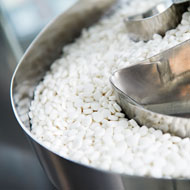NOAH clarifies critically important antibiotics

"All classes of antibiotics, whether critically important or not, should be used responsibly" - Donal Murphy, NOAH.
A document to clarify which antibiotics should be considered as critically important has been published by the National Office of Animal Health (NOAH).
The document comes after an assessment by the European Medicines Agency (EMA) and aims to clear up any confusion about which antibiotics should be considered in this group.
Carried out by the Antimicrobial Advice Ad Hoc Expert Group (AMEG), the work has resulted in the further categorisation of critically important antibiotics (CIAs) into risk categories.
Category one contains antimicrobials that are considered a low or limited risk to public health. It includes macrolides, certain penicillins and tetracyclines. NOAH states that these ‘should be used with current responsible use practices to keep their risk low’.
Category two contains antimicrobials that are considered a high risk to public health. This includes fluroquinolones, 3rd and 4th generation cephalosporins and colistin. NOAH adds that these antimicrobials ‘should only be used when there are no alternative antimicrobials authorised for the respected target species and indication’.
“NOAH believes the classification and use of antibiotics in veterinary medicine should be driven and guided by the regulators, who are independent and make science based decisions and recommendations,” said Donal Murphy, head of technical and regulatory affairs at NOAH.
“Of course, all classes of antibiotics, whether critically important or not, should be used responsibly and guided by the principle outlined by the Responsible Use of Medicines in Agriculture Alliance (RUMA) who state they should be used ‘as little as possible but as much as necessary’.
“The use of these important products in this manner can ensure that the availability and efficacy of antibiotics can be maintained to ensure animal health and welfare in the future,” he adds.
To view the document and other NOAH briefing documents on antibiotics visit noah.co.uk.



 The Veterinary Medicines Directorate (VMD) is inviting applications from veterinary students to attend a one-week extramural studies (EMS) placement in July 2026.
The Veterinary Medicines Directorate (VMD) is inviting applications from veterinary students to attend a one-week extramural studies (EMS) placement in July 2026.